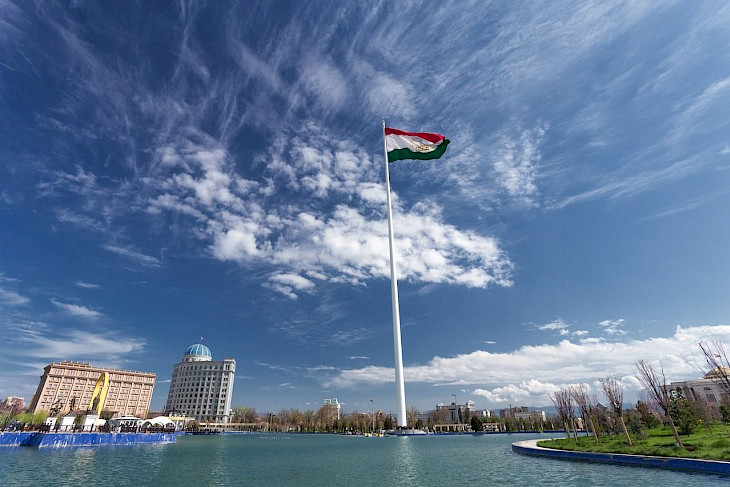President of Tajikistan Emomali Rahmon held a private meeting with Russian President Vladimir Putin in Moscow to discuss the challenges and prospects of bilateral relations. Rahmon traveled to St. Petersburg at Putin's invitation, who had convened the leaders of all CIS countries. However, the separate talks with Rahmon, held outside the informal CIS summit, underline the significance of issues in their bilateral relations.
Tajikistan's economy heavily depends on remittances from overseas workers, which constitute 50% of its GDP. In 2023, these remittances amounted to $5.7 billion. Currently, nearly 7 million Tajik citizens work in Russia in various sectors, including construction and services, according to the analytical article by Finam.ru discussing the state of Russia-Tajikistan relations.
The article notes that Russia has recently introduced several laws tightening requirements for migrants. Additionally, the State Duma is considering a law that would prohibit schools from admitting children who do not speak Russian. These stricter regulations have led to a reduction in migration flows from Tajikistan to Russia. According to Tajik authorities, as cited by RBC, migration decreased by 16% in the first half of 2024, totaling 392,000 people.
Due to the sensitivity of migration issues, they may not have been addressed in the public portion of the presidents' discussions. However, Putin’s aide Yuri Ushakov told journalists that migration issues would be discussed during the meeting. The leaders briefly touched on the topic of teaching the Russian language in Tajik schools. According to Putin, there are currently 72 Russian language teachers in Tajikistan, and this number will increase to 82 in 2025. With Tajikistan's population exceeding 10 million, Putin remarked, “I know you always criticize us for having too few Russian teachers and textbooks.”
Following the terrorist attack at Moscow's Crocus City Hall in April, allegedly involving Tajik citizens, various political forces have called for the introduction of visa requirements for Central Asian countries. However, Moscow hesitates, mindful of potential retaliatory measures, especially given Russia’s military base in Tajikistan, which plays a crucial role in countering the possible infiltration of terrorist groups from neighboring Afghanistan.
Unlike Russia, which has begun actively engaging with the ruling Taliban movement (banned in Russia), Tajikistan distances itself from supporting the group. At a recent BRICS summit in Kazan, Tajikistan’s delegation refused to sign a joint declaration related to Afghan settlement efforts.
“Tajik partners objected to two points. First, most participants of the format welcomed the Taliban’s efforts in fighting ISIS (a terrorist group banned in Russia) in Afghanistan and encouraged Afghan authorities to continue these efforts in the interest of regional security. Second, we praised the Afghan authorities for their fight against the drug trade,” Russia's special envoy to Afghanistan Zamir Kabulov explained to journalists earlier.
The Tajik president remains the only Central Asian leader who has ruled his country for over 30 years. Rahmon was a Soviet-era official in Tajikistan and emerged as a compromise figure after the bloody civil war, eventually assuming leadership of the nation. However, Tajik society has grown weary of his prolonged rule, with many citizens observing the changes that have taken place in neighboring Uzbekistan under the new president, Shavkat Mirziyoyev.
Observers note that Tajikistan is currently undergoing a power transition process: 72-year-old Rahmon is preparing to transfer power to a family member. The most likely successor is his son, Rustam Rahmon, who currently heads the National Council, the upper house of Tajikistan’s Supreme Assembly.
“The most probable outcome is that the president’s transition plan will succeed, allowing the government to retain enough resources to satisfy loyalists and prevent a coup. However, this stability is fragile, and both Moscow and Beijing are closely watching for signs of growing ISIS (banned in Russia) influence among the young rural poor,” noted an analytical review by European think tank GIS Reports.
CentralasianLIGHT.org
December 26, 2024

